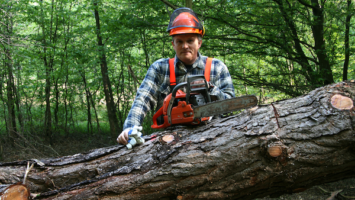Invest in Your Health Cultivating a Healthy Mind Guidebook
This guidebook is part of the Invest in Your Health “Cultivating a Healthy Mind” curriculum for ag educators. Click “view” to download the PDF.
This guidebook is part of the Invest in Your Health “Cultivating a Healthy Mind” curriculum for ag educators. Click “view” to download the PDF.
Animal depopulation is associated with distressing psychological impacts on people. These impacts affect many stakeholders including veterinarians, producers, public health officials, and others who make decisions about and carry out depopulation. The Animal Depopulation Resiliency Check-in Tool (ADRCT) is a five-question public health protocol for stakeholders who are preparing for, participating in, and recovering from animal depopulation.
In the San Luis Valley, Colorado – community leaders have voiced increasing concern for the behavioral health of workers in the agriculture industry. Using Total Worker Health® and Total Farmer Health® frameworks, we developed an interactive worker wellbeing assessment. Approximately 118 participants responded to our survey with a completion rate adequate for analysis. This presentation will describe worker wellbeing through measures of job satisfaction, coworker support, work affect, work fatigue, overall health status, chronic health conditions, individual stress, general mental health status, substance use, work injury, social support, anxiety, and depression.
Hearing loss is common, especially among workers who are exposed to hazardous noise where they work. Forestry and Logging are among the top industry sectors for worker exposure to hazardous noiseRead More

This is a resource discussing foreign animal disease (FAD) and the impact on farmers’ mental health. Learn how to identify signs of stress and depression, and how to care forRead More

Learn about the impact of euthanizing birds on a farmers’ mental health and get connected with resources. English Title: Avian Influenza & Farmers’ Mental Health
The American Foundation for Suicide Prevention (AFSP) provides resources and connections for individuals and communities regarding suicide prevention and postvention. The aftermath of a suicide can be lonely and isolating for those left behind. This special webinar will focus on AFSP’s Healing Conversations, a no-cost program for people impacted by suicide loss. Learn how to access the program for yourself or someone you know struggling with suicide loss.
Veterans deal with a whole host of disabilities, traumas, and transitional issues following military service. Agriculture can serve as a solution to many veteran issues through professional training to support career goals and therapeutic activities to support overall wellness of the veteran and their families. Crosscutting programs like Heroes to Hives seek to address these multifaceted needs through professional training in beekeeping and transpersonal wellness practices within the course that seek to utilize bees and the interaction with them as modalities for positive health outcomes. In this session, we will discuss how Heroes to Hives delivers wellness opportunities and practices to their students.

It’s no surprise that farmers’ behavioral health is positively correlated with crop production and healthy animals. But what happens when markets swing, there’s a drought, feed prices go sky-high, and you can’t find good employees? Stress. It’s the body’s reaction to any change that requires an adjustment or response. Stress creates chemical reactions in our bodies, and cortisol is released, our blood thickens, our blood pressure increases, and more. Chronic stress can lead to your brain shrinking from the constant flow of cortisol. This clearly illustrates why we need to find ways to release cortisol to protect our brain. Science shows that ongoing stress can negatively impact: your brain size and how it functions, the way your children and grandchildren are genetically equipped to handle stressors, and your susceptibility to depression or Alzheimer’s. The solutions are not complicated but are often overlooked. Michele helps you understand tools like rest, exercise, nutrition, and the value of including stress management as a part of their business.
Spanish Title: Protege tu cerebro del estrés
[variable-button link="https://www.agrisafe.org/developed-training//?webinar_title=forestrymusc"] Request This Training [/variable-button]
Stress can directly impact safety. Whether managing forestry wildfires or working long strenuous days harvesting and hauling timber, the forestry and logging workforce face unique situations that can predispose stress and challenges to mental well-being. The agriculture, forestry, fishing, and hunting (AgFF) industries has one of highest percentages of deaths by suicide. Key factors contributing to despair and distress include financial losses, chronic illness or pain, a sense of work-life imbalance, and lack of mental health support. This session will explore the topic with a review of specific risk factors, and discuss ways to support this workforce in an unpredictable environment. Read More


This is a resource discussing foreign animal disease (FAD) and the impact on farmers’ mental health. Learn how to identify signs of stress and depression, and how to care forRead More

This document contains websites and helplines that might be beneficial to youth who are encountering stressors.

This presentation was given in Spring 2022 to AgriSafe staff on the agricultural health and safety issues impact Black producers in the United States. View now to see what we learned!

This webinar introduces the practice of Curanderismo as an ethno-indigenous form of health and healing originating in Mesoamerica and practiced among many Latinx communities. The presenters will discuss their work with traditional medicine and present the specializations of Curanderismo, which can be used by people of all cultural backgrounds and various health providers with their patients. The presenters will begin with a brief opening ceremony, provide their personal narratives of traditional healing, a historical grounding of Curanderismo, present the specializations of the traditional medicine, and discuss current efforts to integrate traditional and allopathic medicine.

This webinar will introduce participants to current challenges in the commercial fishing industry and how they are impacting the mental health and well-being of commercial fishermen and their communities. The presenters will also share resources that are available (and in the process of being created) that are intended to promote mental health awareness and provide resources for fishermen seeking support.

Learn about the impact of euthanizing birds on a farmers’ mental health and get connected with resources.